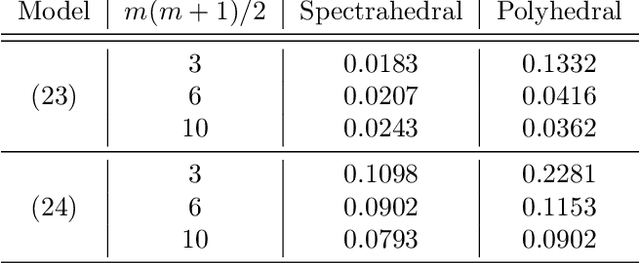Spectrahedral Regression
Paper and Code
Oct 27, 2021



Convex regression is the problem of fitting a convex function to a data set consisting of input-output pairs. We present a new approach to this problem called spectrahedral regression, in which we fit a spectrahedral function to the data, i.e. a function that is the maximum eigenvalue of an affine matrix expression of the input. This method represents a significant generalization of polyhedral (also called max-affine) regression, in which a polyhedral function (a maximum of a fixed number of affine functions) is fit to the data. We prove bounds on how well spectrahedral functions can approximate arbitrary convex functions via statistical risk analysis. We also analyze an alternating minimization algorithm for the non-convex optimization problem of fitting the best spectrahedral function to a given data set. We show that this algorithm converges geometrically with high probability to a small ball around the optimal parameter given a good initialization. Finally, we demonstrate the utility of our approach with experiments on synthetic data sets as well as real data arising in applications such as economics and engineering design.
 Add to Chrome
Add to Chrome Add to Firefox
Add to Firefox Add to Edge
Add to Edge